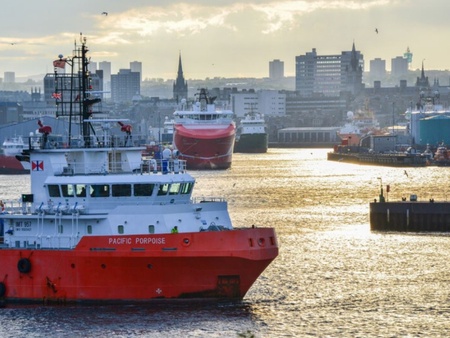The UK Government's proposals to extend the Energy Profits Levy (EPL) on North Sea oil and gas activities will see investment in new fields - particularly small ones - reduced, according to economists.
However the University of Aberdeen research also finds that the recently announced removal and reduction of the investment and capital allowances for the North Sea oil and gas sector would have a greater effect on reducing prospective returns than the increasing headline rate of EPL from 35% to 38% - which raises the overall total tax headline rate from 75% to 78%.
Globally recognised energy economist Professor Alex Kemp and his team at the Business School have produced an independent critical analysis of the EPL and the changes due to come into effect on 1 November 2024.
They used financial simulation modelling to assess the prospective returns on investment from a representative set of fields mirroring those of recent vintage.
Their modelling incorporated all the current and prospective tax arrangements applicable to the UK Continental Shelf, including the complex capital and investment allowances for Ring Fence Corporation Tax, Supplementary Charge and the EPL.
They also examined the difference in expected returns depending on whether the investor had current taxable income available against which he could set his various allowances.
The modelling found that prospective returns on investment for the representative fields at present oil prices were less than those likely to be required in a capital-constrained environment. If the investor has no other field income against which to set his allowances prospective returns are reduced further.
The study also examined the effects of changing the timing of new investments in the context of the EPL ceasing at the end of March 2030.
"We found that there were incentives to postpone initial field investments from the base year of 2025 to a later date, as this would ensure that more of the field income was taxed at the lower rate of 40%*," said Professor Kemp. "However, this assumes that the EPL does actually cease at the end of March 2030. At least some investors are concerned that there may be a further extension of the life of the EPL."
The study should be seen in the context of the UK being a net importer of oil and gas. The UK currently relies on overseas sources for over 50% of oil and gas to meet its primary energy needs, a figure that is set to increase to 2050 using the central UK consumption projections made by the Climate Change Committee consistent with the attainment of Transition to Net Zero by 2050, and the central production projections made by the North Sea Transition Authority.
"There is a major import requirement for both oil and gas," added Professor Kemp. "Thus, more UK production from new field developments can reduce this large gap and result in less emissions relating to imports. The UK GDP would also be higher as a consequence of further new developments."
Professor John Underhill, director of the Interdisciplinary Centre for Energy Transition at the University, said: “The University has a group of world-leading experts spanning geoscience, computing and engineering through to energy law, regulation, business, biological and social sciences. The central role of an academic institution, and particularly an economic unit working within the energy sector in Aberdeen, is to provide independent analysis of any change to the tax regime.
“What this research shows is the consequences also go beyond investment in current or new fields. A rise in the EPL and loss of investment and capital allowances may have the unintended effect of accelerating decommissioning and decelerating the energy transition as companies face an additional cost burden.”
Professor Kemp added: “We have already seen this in the Forties field where the operator has announced that following the increased tax from EPL, incremental investments in the field are to be cancelled with the consequence that the timing of cessation of production is accelerated by several years.”



